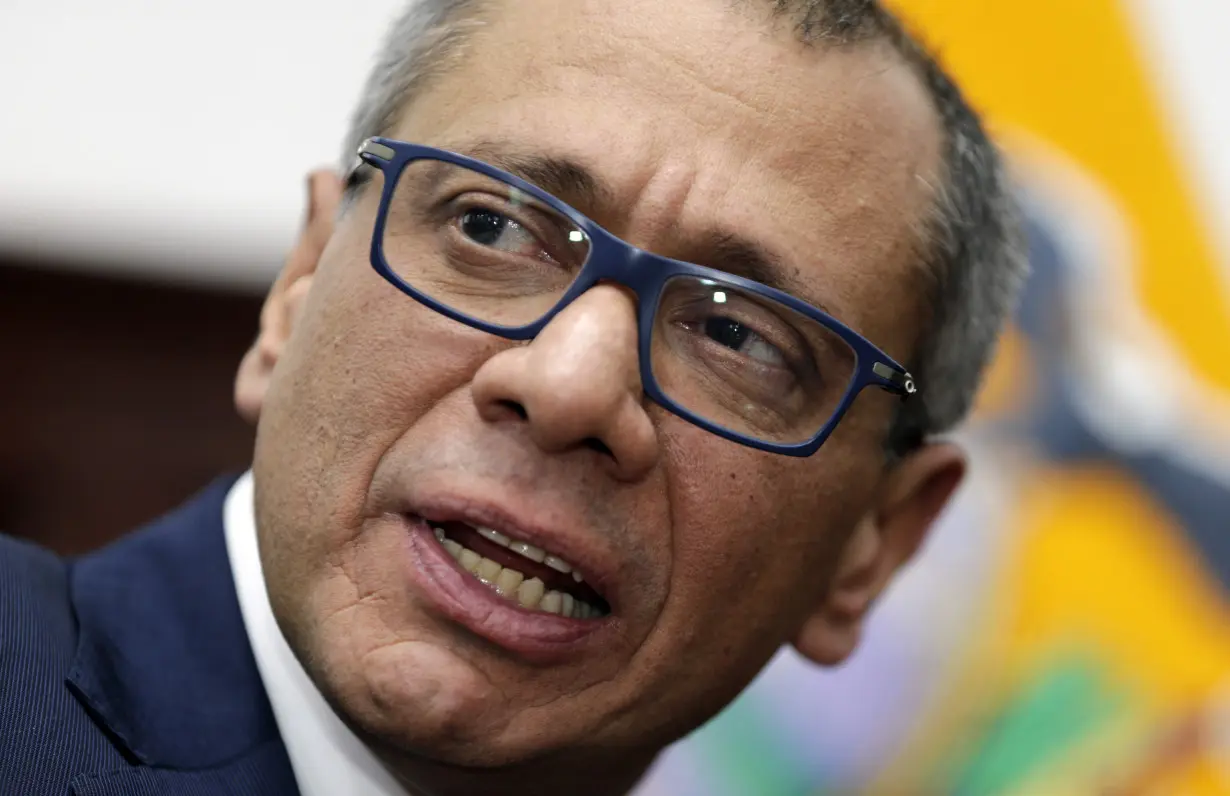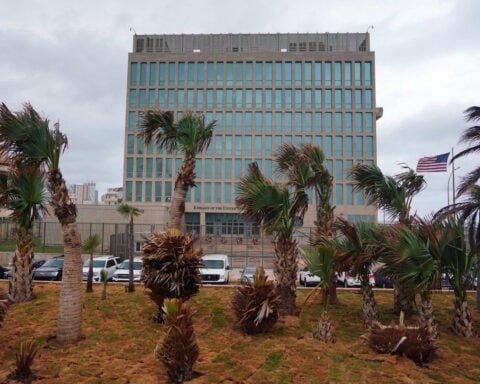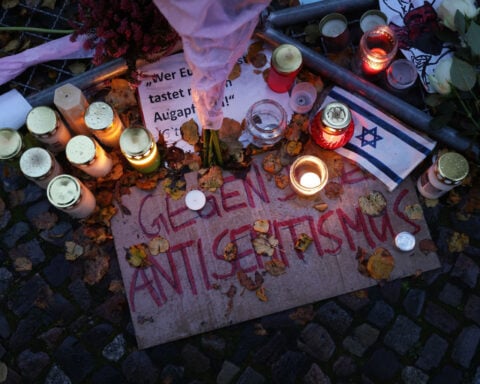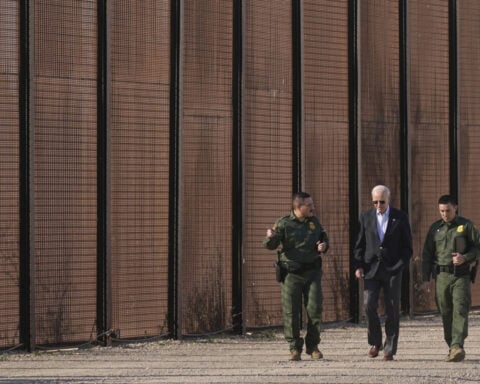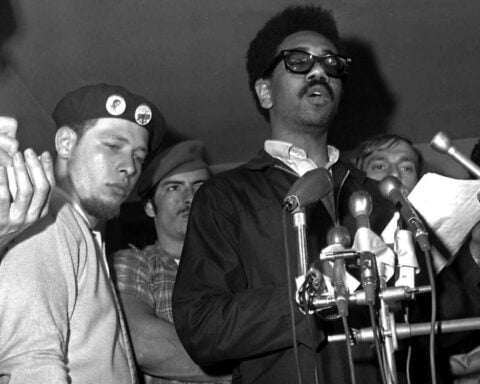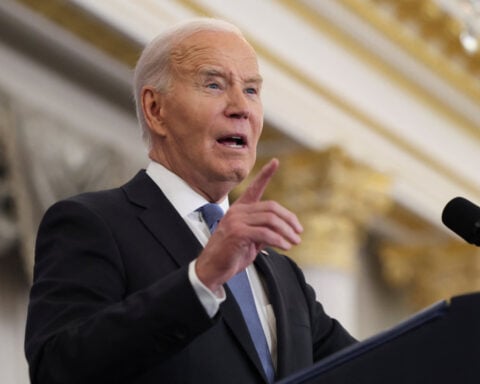QUITO, Ecuador (AP) — Ecuador filed a complaint Monday at the top U.N. court over what it called Mexico’s illegal move to grant political asylum to a former Ecuadorian vice president, which led to Ecuador’s highly criticized raid on a Mexican embassy earlier this month.
The Ecuadorian complaint at the International Court of Justice in the Netherlands intensifies a high-profile diplomatic quarrel with Mexico, which has filed its own complaint with the panel alleging that Ecuador’s highly unusual April 5 raid to arrest Jorge Glas was illegal.
Ecuador’s counterclaim is that Glas was a fugitive wanted on corruption convictions and not for political reasons, and that therefore he was not eligible for Mexico’s diplomatic protection. Ecuadorian authorities forcibly entered the Mexican embassy in Quito to arrest the former Ecuadorian vice president hours after Mexico granted him asylum.
Mexico failed to comply with “its obligations not to grant asylum to people who are being prosecuted or on trial for common crimes or have been convicted by competent ordinary courts,” Ecuador's Foreign Ministry said in a statement.
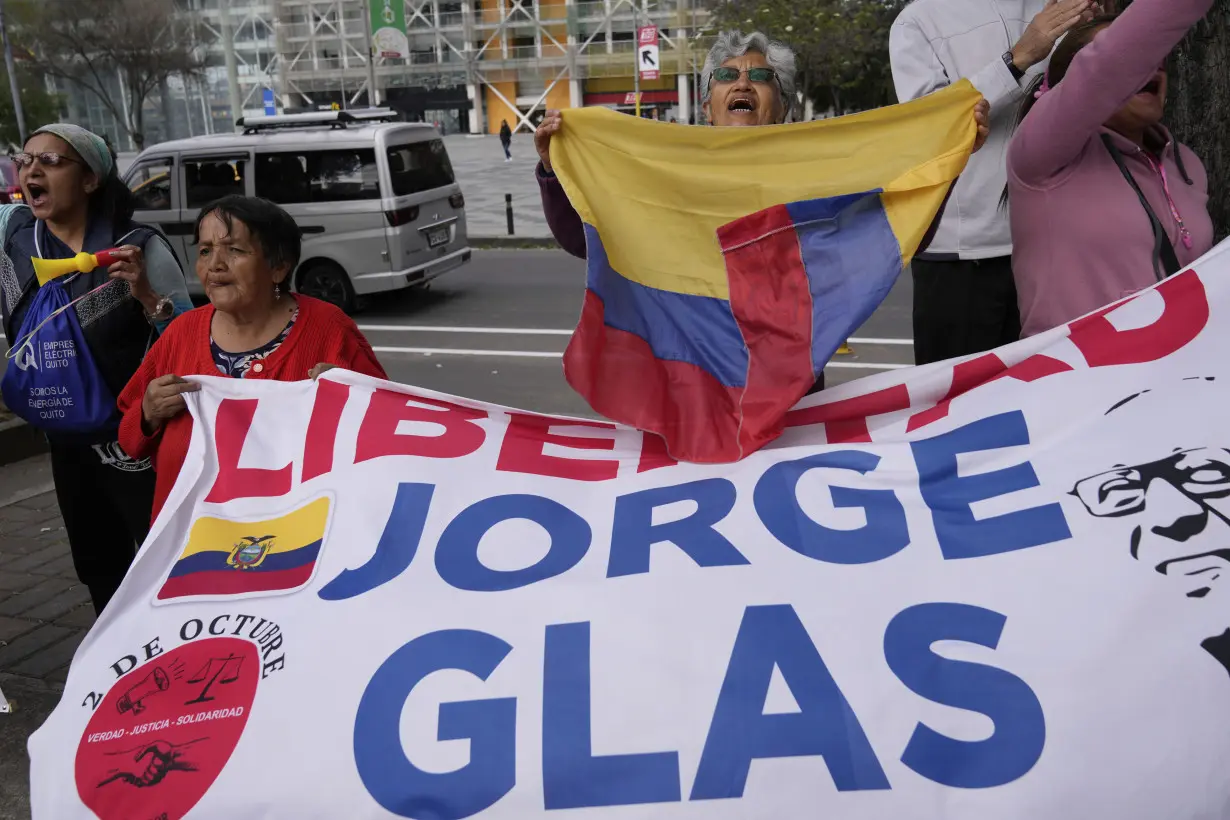
Glas, who was convicted in two corruption cases, had been living at the diplomatic compound in Ecuador’s capital, Quito, since December. He is now being held at a maximum security prison at the port city of Guayaquil.
The court said in a statement that Ecuador “accuses Mexico of unlawfully granting Mr Glas political asylum and of interfering in its internal affairs.”
Security camera video released by Mexico’s government shows that Ecuadorian police scaled the embassy walls and broke into the building. Roberto Canseco, Mexico’s head of consular affairs in Ecuador, tried to keep them from entering, even pushing a large cabinet in front of a door. But police restrained him and pushed him to the floor as they carried Glas out.
Authorities are currently investigating Glas over alleged irregularities during his management of reconstruction efforts following a powerful earthquake in 2016 that killed hundreds of people. He previously was convicted on two separate bribery and corruption cases.
Diplomatic premises are considered foreign soil and “inviolable” under the Vienna treaties and host country law enforcement agencies are not allowed to enter without permission from the ambassador.
Legal experts, Latin American presidents and diplomats swiftly condemned Ecuador's extremely rare show of force. Venezuelan President Nicolás Maduro even ordered the closure of his country’s embassy and consulates in Ecuador in solidarity with Mexico.
Immediately after the raid, Mexico broke diplomatic relations with Ecuador, recalled its diplomatic staff and closed its embassy and consulates. Days later, it filed a complaint with the court.
In its case filed April 11, Mexico asked the World Court to order Ecuador to take “appropriate and immediate steps to provide full protection and security of diplomatic premises” and prevent any further intrusions. It also wants Ecuador to let Mexico clear its diplomatic premises and the homes of its diplomats in the country.
Mexico also asked the court to award reparation and suspend Ecuador from the United Nations. Hearings on Mexico's case are set to begin Tuesday.

 India's navy launches submarine, warships to guard against China's presence in Indian Ocean
India's navy launches submarine, warships to guard against China's presence in Indian Ocean
 UK inflation unexpectedly eases in December, which could reduce pressure in bond markets
UK inflation unexpectedly eases in December, which could reduce pressure in bond markets
 Body count from South African mine siege rises to 60
Body count from South African mine siege rises to 60
 Question on ASEAN stumped Hegseth at Senate hearing. What is it and why is it important?
Question on ASEAN stumped Hegseth at Senate hearing. What is it and why is it important?
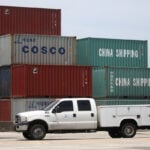 US importers rush in goods from China as Trump tariff threat looms
US importers rush in goods from China as Trump tariff threat looms
 Novak Djokovic breaks a tie with Roger Federer for the most Grand Slam matches in tennis history
Novak Djokovic breaks a tie with Roger Federer for the most Grand Slam matches in tennis history
 China's RedNote: what you need to know about the app TikTok users are flocking to
China's RedNote: what you need to know about the app TikTok users are flocking to
 British author Neil Gaiman denies ever engaging in non-consensual sex as more accusers come forward
British author Neil Gaiman denies ever engaging in non-consensual sex as more accusers come forward
